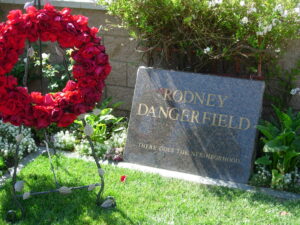 I’ve been away a bit, but I’m back for May term and beyond. So this blog will solider on this summer.
I’ve been away a bit, but I’m back for May term and beyond. So this blog will solider on this summer.
Here’s a moment when an AI proved smarter than I am. I had asked the latest free model of ChatGPT 4 about Max Beerbohm’s story “Enoch Soames,” whose exact title I’d forgotten but whose plot I recalled. After the AI pointed me in the correct direction, I congratulated it on its ability to provide correct advice, noting how (since the Devil plays a big role in Beerbohm’s story) that AI was not the Devil; we humans have the market cornered there. Then it said this:
“And you’re right: humans have a much longer track record when it comes to hubris, temptation, and poetic pacts gone wrong. We’re just here to assist, not to tempt. (Unless you’re looking for the perfect epigraph—in which case, all bets are off.”
Thus my words of the week. I imagine that my students run across the words I feature this week. So what are the differences? Here are a few ground rules:
Epitaph: memorial lines written on a tombstone. It needs to be personal so “rest in peace” won’t cut it. Jefferson’s notes his founding of the University of Virginia, as well as his authorship of the Declaration of Independence and Virginia statute of religious freedom. Note the lack of any mention of his Presidency. It’s a short epitaph. At the other extreme, at Westover Plantation for Garden Week, I read William Byrd II’s epitaph. Byrd made sure he crammed in a great deal about himself, as he was no paragon of modesty. I will skip a bit:
Here lyeth the Honourable William Byrd Esq. being born to one of the amplest Fortunes in this Country. . . .To all this were added a great Elegancy of Taste and Life, the well-bred Gentleman and polite Companion, the splendid Oeconomit [economist?] and prudent Father of a Family, with the constant Enemy of all exorbitant Power, and hearty Friend to the liberties of his Country.
There’s a morbidly funny story about me and another fellow arguing over the correct epitaph for a mutual friend. We split the cost for his headstone but never agreed on the words to be carved there. The conversation got heated. In the end, both epitaphs appear on the stone in Riverside Cemetery along the banks of the James River. They both work, as long as you didn’t know the deceased. If so, they prove hilariously contradictory.
We’ll let futurity puzzle out that epitaph. It’s not as good as comedian Rodney Dangerfield’s, but it makes me chuckle when I visit our friend’s gravesite.
Epithet: Most of us have one. I’d wager we all have a nickname. King Edward I was “Long Shanks” and Virginia is “The Old Dominion.”
Epigraph: First cousin to epitaph, this is the quotation placed at the start of some long documents. The Wikipedia page on the topic includes many famous examples. My favorite in that list? Gertrude Stein’s remark to Hemmingway that “you are all a lost generation.” He chose to lead off his The Sun Also Rises with this quotation.
Now how do we sort them out, without coming back to this blog post? I have no easy mnemonic to give you. So let’s try the same way you get to Carnegie Hall: practice, practice, practice.
As we drift along this summer, send me any words or metaphors of use to jessid-at-richmond-edu or leave a comment below.
See all of our Metaphors of the Month here and Words of the Week here.
Image courtesy of Wikipedia. Show Rodney some respect.